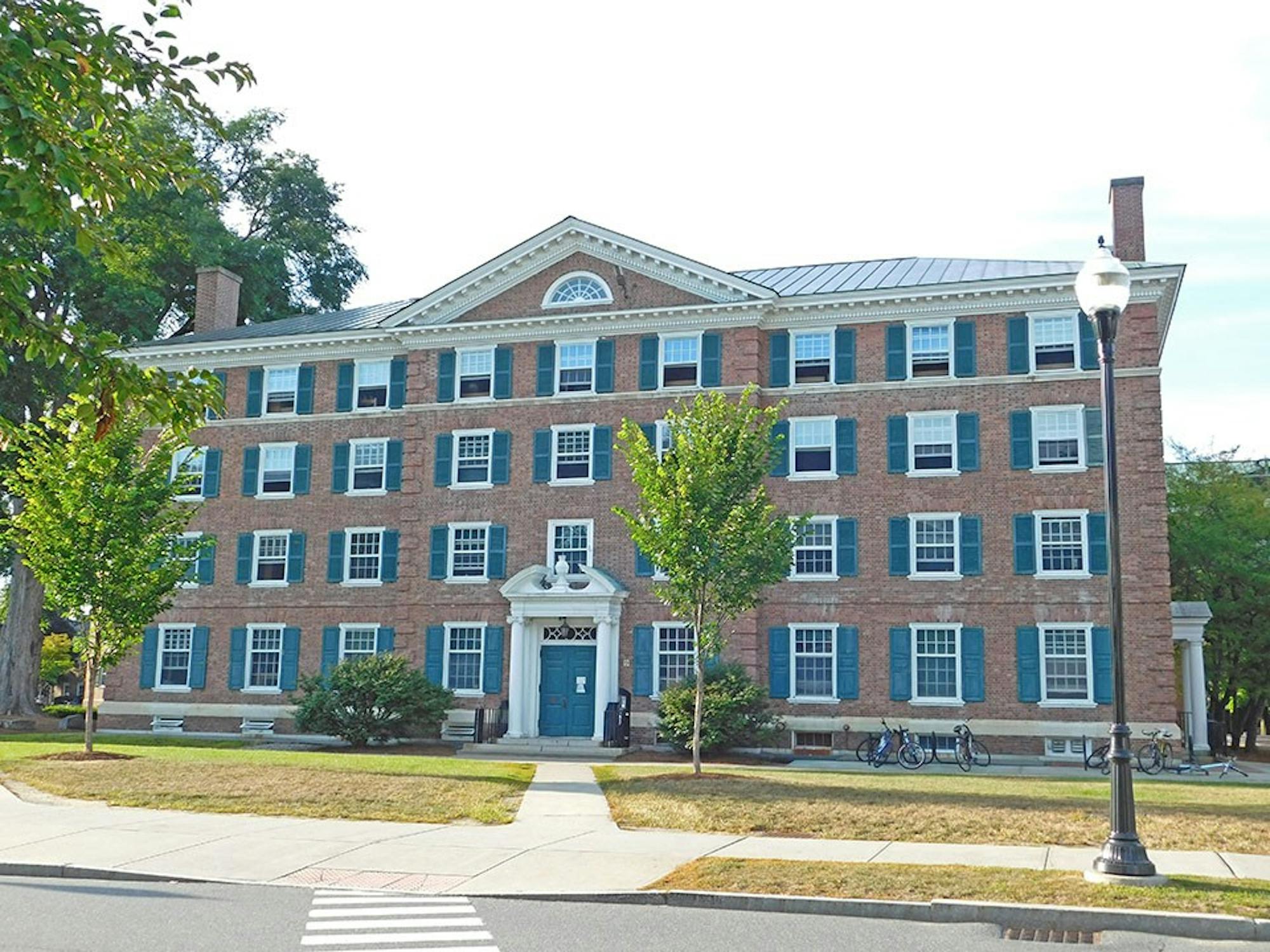As you incoming ’20s will quickly discover, Dartmouth is full of traditions — both outdated and timeless. From first-year trips and matriculation to the climactic Homecoming weekend, your first term will introduce you to a culture defined in part by rituals that define the school year. The upcoming fall term, however, will be especially meaningful because it marks the beginning of a new tradition — the dividing of students into housing communities. You ’20s will be the first class to experience the housing system, which College President Phil Hanlon announced to faculty and students in 2015.
While the communities will affect all undergraduates, they will serve as a defining aspect of the Dartmouth experience for freshmen. To help prepare you for the transition to college and life within a house à la Gryffindor or Slytherin, here is a guide to the seven housing communities:
Allen House
This housing community consists of three halls — Gile, Streeter and Lord — which are commonly referred to as the Gold Coast Cluster. Allen House, which is situated along Tuck Mall, will have access to House Center B, a social space that will be shared with members from School House. The two-story building located south of Gile Hall will have a convenience store and flexible spaces. Allen House professor, engineering professor Jane Hill said she is excited to meet students and learn about the community they are interested in building during her first year.
“In addition to a great education amongst stimulating students and professors, you get an opportunity to interact with people who are at the peak of what they do,” Hill said. “This creates an amazing circle of intellectual coolness.”
Hill said she is also looking forward to hosting house members at her new residence on Allen Street.
East Wheelock House
Four modern residence halls — Andres, Zimmerman, McCulloch and Morton — comprise the East Wheelock House. These buildings have ample study spaces and access to a large flexible space, Brace Commons, as well as a snack bar. Although East Wheelock is the easternmost community from the center of campus, it is close to the Alumni Gym and Leede Arena. East Wheelock House professor, math professor Sergi Elizalde, previously served as the faculty director for the East Wheelock cluster. In addition to providing house members with the opportunity to attend performances at the Hopkins Center and hosting dinners with visiting artists, Elizalde said he is also open to more informal community events such as a hiking trip or a barbeque. The East Wheelock House, he said, will provide some continuity to students’ lives for those who leave campus during foreign study programs or off-terms.
“The fact that there will be the same students here for four years will create some community and students will have a place where they feel they belong,” Elizalde said.
North Park House
North Park House includes Ripley, Woodward and Smith Halls, which are interconnected and located between East Wheelock House and the three Fayerweather halls. Biology professor Ryan Calsbeek will serve as the inaugural house professor for this housing community. In addition to being a short walking distance from the Hopkins Center and the Alumni gym, North Park members will also be able to use House Center A as a gathering space along with members from South House. The center will include study spaces and a small fire pit.
School House
School House includes Massachusetts Row — South Massachusetts, Mid Massachusetts and North Massachusetts halls — as well as Hitchcock Hall. Within short walking distance from Baker-Berry Library, the Class of 1953 Commons (Foco) and the Collis Center, this community boasts the best location on campus. School House members will also have access to House Center B with Allen House members. School House professor, math professor Craig Sutton, said he has already received input from School House upperclassmen and looks forward to adding the ’20s into the mix this fall.
“There must be something special about a community of scholars, a community of intellectuals, a community of civic minded people being within physical proximity of each other,” Sutton said. “Over the next four years, I’m interested in doubling down on this investment in a residential-liberal arts education and rearticulating what it means for the Dartmouth’s existence.”
South House
This housing community is comprised of Topliff and New Hampshire halls and the Lodge. Though this house is rather spread out because of how far Topliff and New Hampshire halls are from the Lodge, members will be able to congregate at House Center A with members of North Park House. These residences are within walking distances from the Hopkins Center, the Black Family Visual Arts Center, Alumni Gym and off-campus restaurants on Lebanon Street. Sociology professor Kathryn Lively is the South House professor.
West House
Physics and astronomy professor Ryan Hickox is the house professor of West House, which includes four residence halls — Fahey, McLane, Butterfield and Russell Sage Halls. This community is located opposite Allen House along Tuck Mall. Its residence halls are nears Baker-Berry Library, fraternity row and Old Tuck Drive, which leads to the Connecticut River. These halls also combine the traditional New England aesthetic of Butterfield and Russell Sage with the modern architecture of Fahey and McLane halls.
Living Learning Communities
Asian and Middles Eastern studies professor Dennis Washburn will oversee living learning communities, which includes members living in eight academic affinity houses and the McLaughlin Cluster. The affinity houses include the Chinese Language House, Sustainable Living Center and Triangle House. The McLaughin Cluster is comprised of six modern halls — Thomas, Goldstein, Byrne II, Rauner, Bildner and Berry. Members have access to a snack bar and a gathering space in Goldstein. Ashley Kekona ’18 , who has lived in an LLC and the Chinese Language House, said freshmen should apply to these communities if they want to connect with a smaller group of people who have similar interests and want to understand different cultures better.




